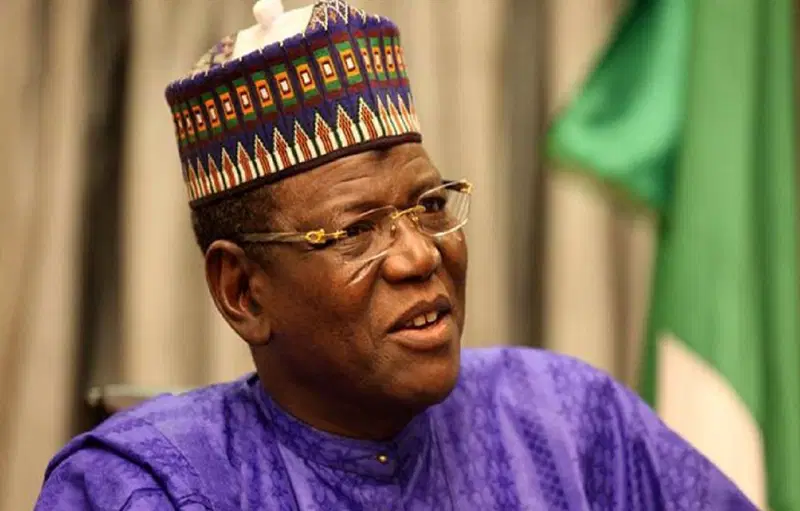Sule Lamido, a prominent figure in Nigerian politics, recounts a pivotal moment in the nation’s history – the June 12 crisis – in his autobiography, Being True to Myself. Following the annulment of the 1993 presidential election, a victory for MKO Abiola, Lamido, then National Secretary of the Social Democratic Party (SDP), found himself in a direct confrontation with the then Head of State, General Ibrahim Babangida. Summoned abruptly to the Presidential Villa, Lamido, still reeling from the election’s annulment, delivered a stark message to Babangida: resign. This bold declaration, as Lamido recounts, was met with stunned silence and a flicker of anger in Babangida’s eyes. The General, surprised by Lamido’s audacity, asserted that no Nigerian would dare utter such words to him, highlighting the immense power he wielded. However, he also acknowledged Lamido’s sincerity and genuine concern for the nation’s political stability.
This unexpected encounter, Lamido recalls, marked a turning point in his relationship with Babangida. The general, initially perceiving Lamido as naive, recognized his unwavering commitment to principle. Despite the tense atmosphere, Babangida engaged in a candid conversation with Lamido, seeking his perspective on the unfolding crisis. Lamido, steadfast in his belief that the annulment was a grave injustice, reiterated the SDP’s stance: June 12 or nothing. He rejected any attempts to organize fresh elections, emphasizing that the only acceptable solution was to reinstate Abiola as the rightful winner. This firm conviction, coupled with the escalating pressure from pro-democracy groups like the National Democratic Coalition, eventually forced the SDP leadership to reconsider their position and engage in negotiations with the military government.
The aftermath of the annulment saw a flurry of political maneuvering, with the military government grappling with the fallout. Babangida, under increasing pressure, sought a way to appease the Yoruba community, who felt particularly aggrieved by the annulment, given Abiola’s Yoruba heritage. The search for a solution culminated in the formation of an Interim National Government (ING), headed by Chief Ernest Shonekan. Lamido sheds light on the rationale behind Shonekan’s selection, emphasizing his strong ties to the British government, his respected position in the corporate world, and his non-controversial nature. Shonekan, a Yoruba and former chairman of the United African Company (UAC), a prominent British company, was seen as a figure who could bridge the divide and placate the aggrieved Yoruba population.
Lamido explicitly clarifies the role played by the political parties in the selection of Shonekan. Contrary to widespread speculation, he asserts that neither the SDP nor the National Republican Convention (NRC) were involved in the decision-making process. The choice, according to Lamido, was primarily driven by Babangida’s administration, seeking a figure who could restore a semblance of stability and satisfy international pressure, particularly from the British government. The appointment of Shonekan was intended to demonstrate that the annulment was not ethnically motivated, but rather a response to other, unspecified concerns.
The June 12 crisis remains a deeply divisive chapter in Nigeria’s history. Lamido’s account offers a unique perspective, revealing the behind-the-scenes interactions between key players during this tumultuous period. His direct confrontation with Babangida, his unwavering commitment to the June 12 mandate, and his insights into the ING’s formation provide a valuable contribution to understanding the complex web of political machinations that shaped the nation’s trajectory. The crisis ultimately paved the way for the rise of General Sani Abacha, who seized power from the ING, further plunging Nigeria into political uncertainty.
Lamido’s narrative underscores the high stakes involved in the June 12 crisis and the difficult choices faced by political actors. The annulment of a free and fair election, the subsequent political maneuvering, and the eventual installation of an interim government highlighted the fragility of democratic institutions in Nigeria. The legacy of June 12 continues to resonate in the country’s political landscape, serving as a constant reminder of the importance of upholding democratic principles and the rule of law. The crisis also underscores the potential consequences of military intervention in politics and the long-lasting impact it can have on a nation’s development.














